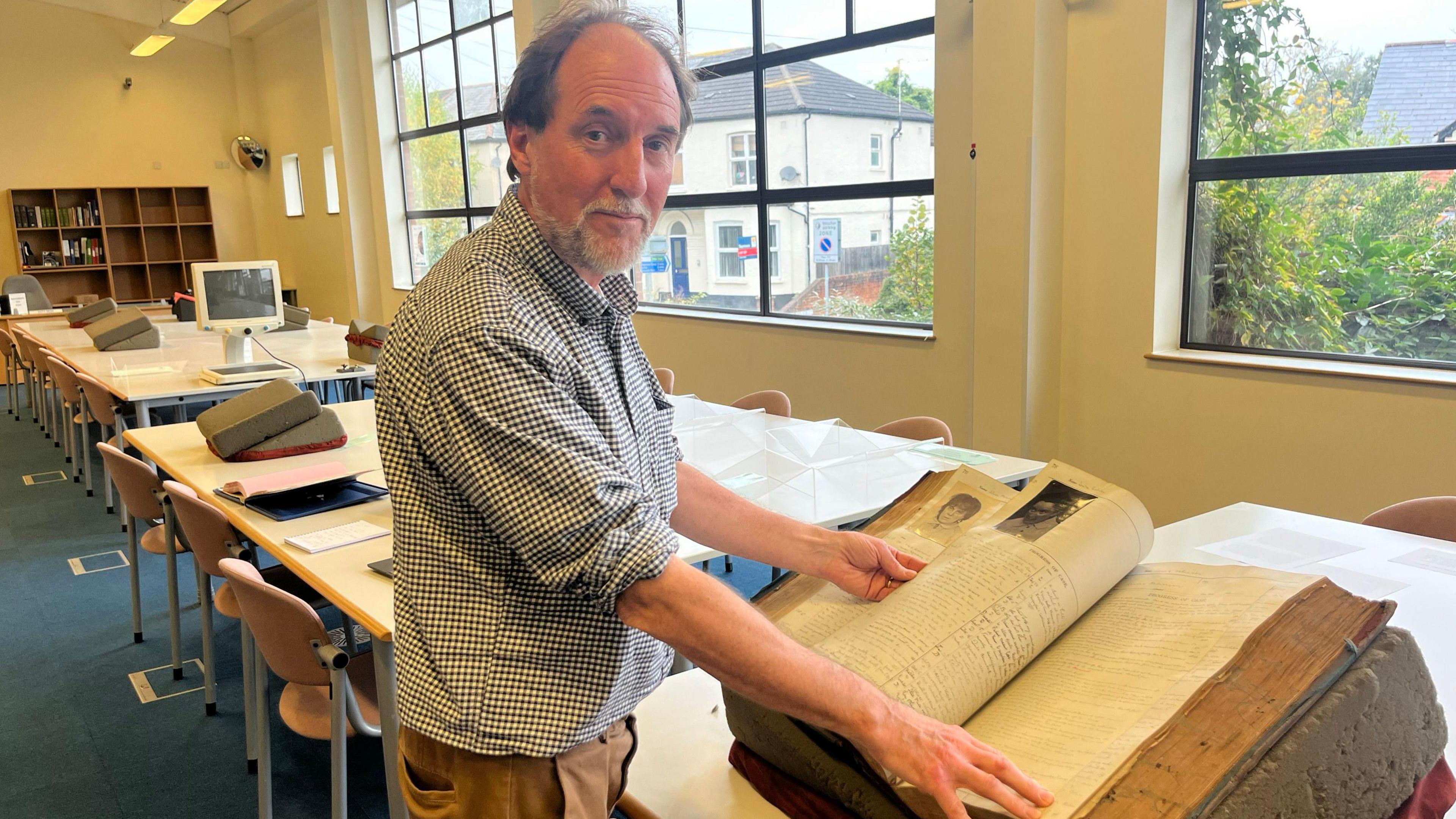'Grandad is one of 9,000 buried in derelict site'
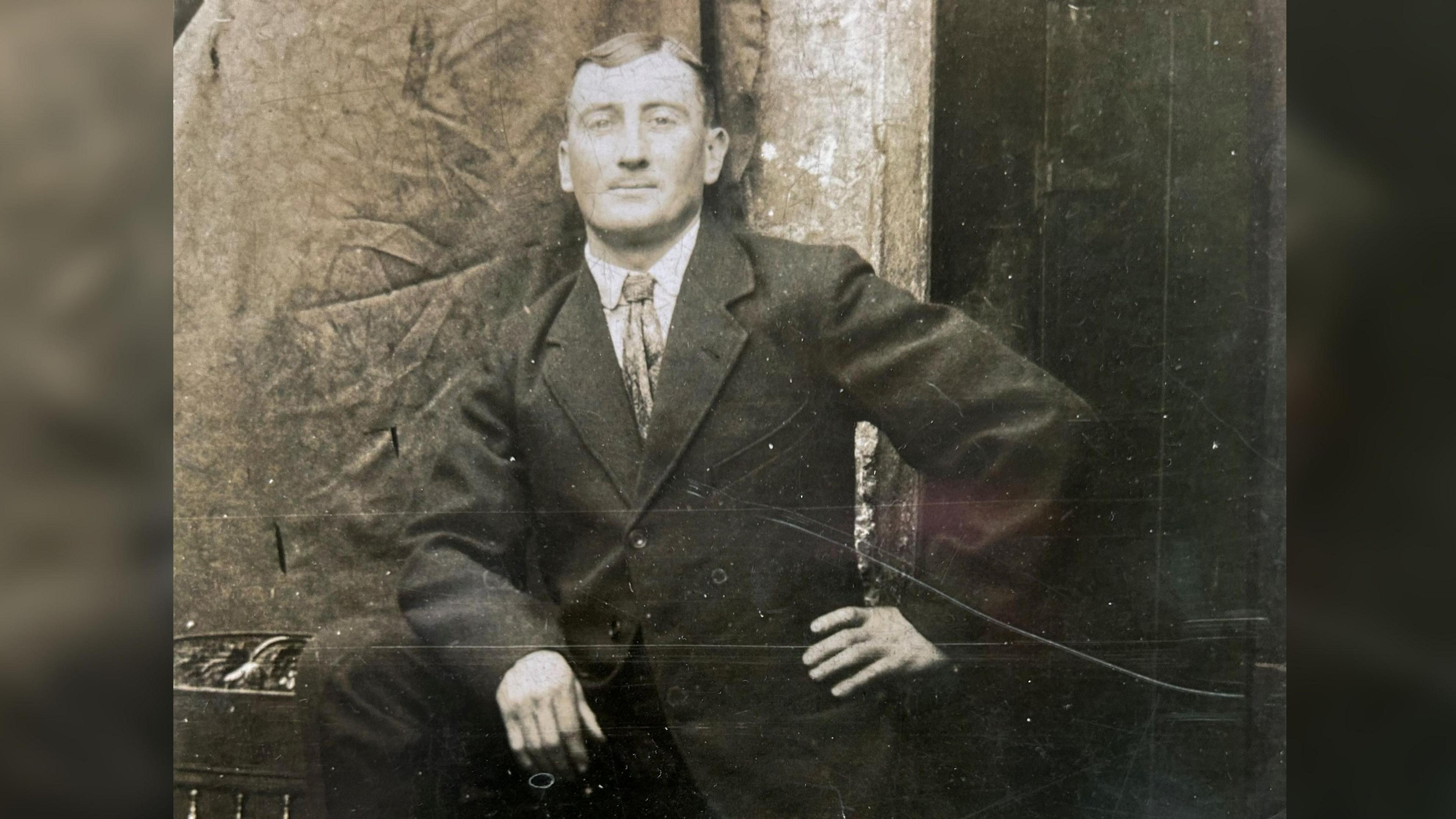
William Robert Newman was 47 when he died
- Published
"I'm a delivery driver, and I drive past there quite often. I'll say: 'Morning, or afternoon, Grandad.'"
Paul Newman's grandfather died in 1947 at the Long Grove Hospital in Epsom, one of a cluster of five institutions known as the Horton Estate.
As a labourer from Pimlico in London, he wouldn't have been earning much money, Mr Newman said, and therefore ended up one of up to 9,000 people buried in a five acre (two hectare) site between the hospitals.
"Unbeknownst to us, we moved to Epsom, not knowing that my grandad was buried about a mile away from where we live," he said.
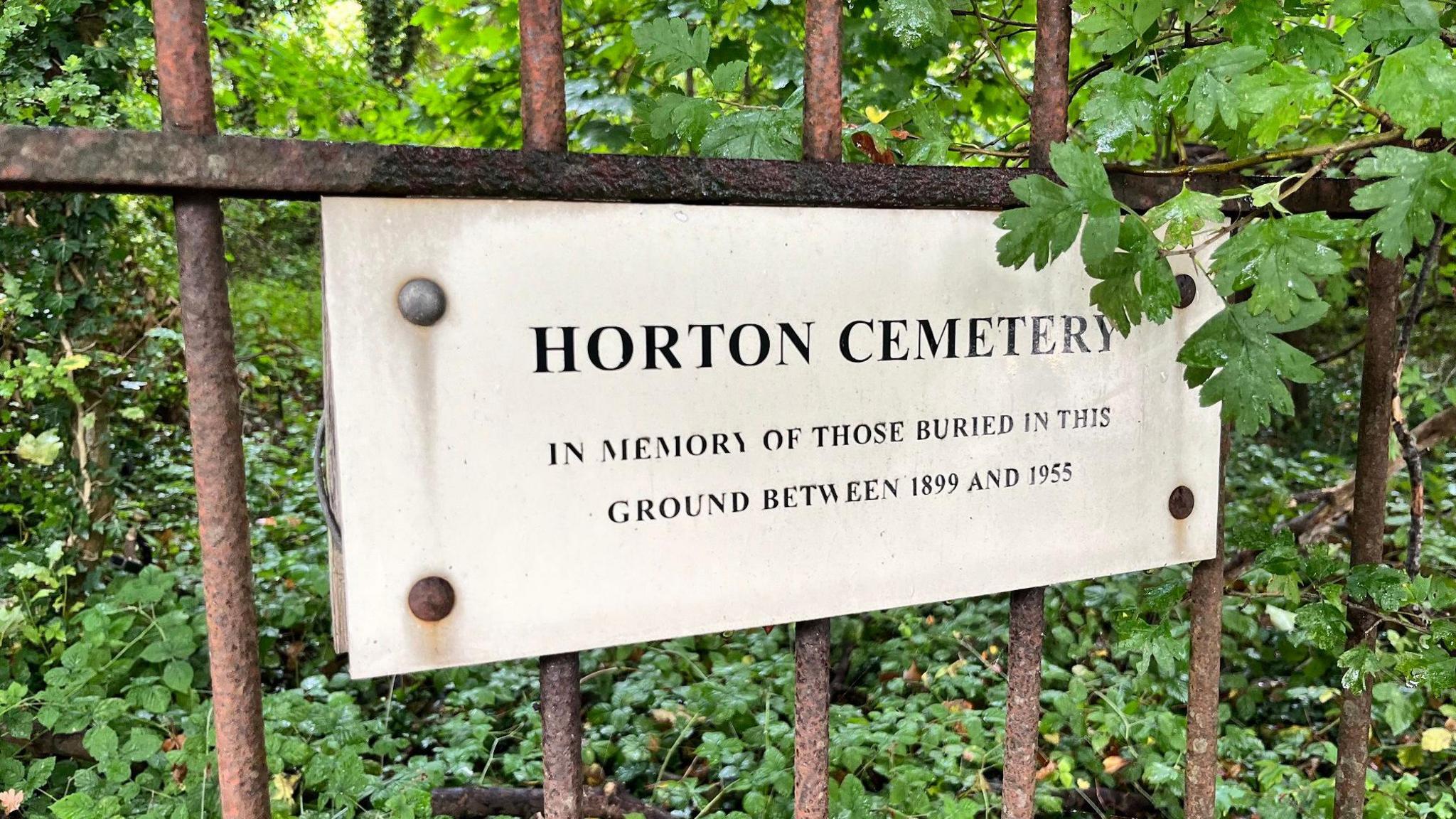
The land was once between a cluster of five psychiatric hospitals
Now privately owned, there have been calls to bring the cemetery back into public ownership, and hopes of turning the site into a memorial for the dead.
Mr Newman's grandfather, William Robert Newman, was 47 when he died, with his causes of death listed as pneumonia and "general paralysis of the insane".
Friends of Horton Cemetery, an organisation hoping to turn the site into a memorial for the dead, wants to see a green public space at the site "with a suitable memorial to all those buried there".
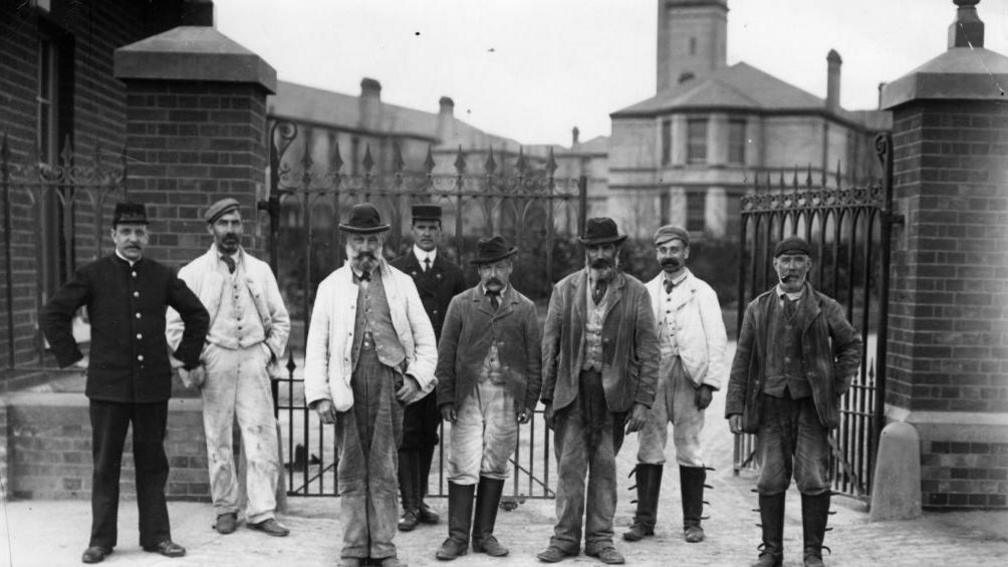
A group of patients from the Horton Asylum in 1907
Prof Alana Harris, from King's College London, said those buried there were "all sorts of people, all walks of life", ranging from "Priscilla a harried housewife, Dutch landscape artists and flamenco dancers".
She is currently looking for more descendants of those buried at the site as part of her research into it, having heard already from people as far away as Australia.
She said people found themselves there for "what we would now recognise as postnatal depression or dementia" alongside "single mothers and queer people".
With the site "derelict, in disarray" and needing "attention and care", Prof Harris said some relatives were "positively aghast" about the state of it.
"Its former use as a cemetery has now been obliterated by the passage of time and so most people in Epsom and Surrey don't know there's a site of national, if not international significance, there," she added.
She said among conversations about planning, housing and the green belt in the area, there were concerns about the future of the largest psychiatric cemetery in Europe, perhaps even the world.
It was important, she said, to make sure the 9,000 people buried there were "kept in view, so they're not out of sight and out of mind the way they were in the 19th Century".
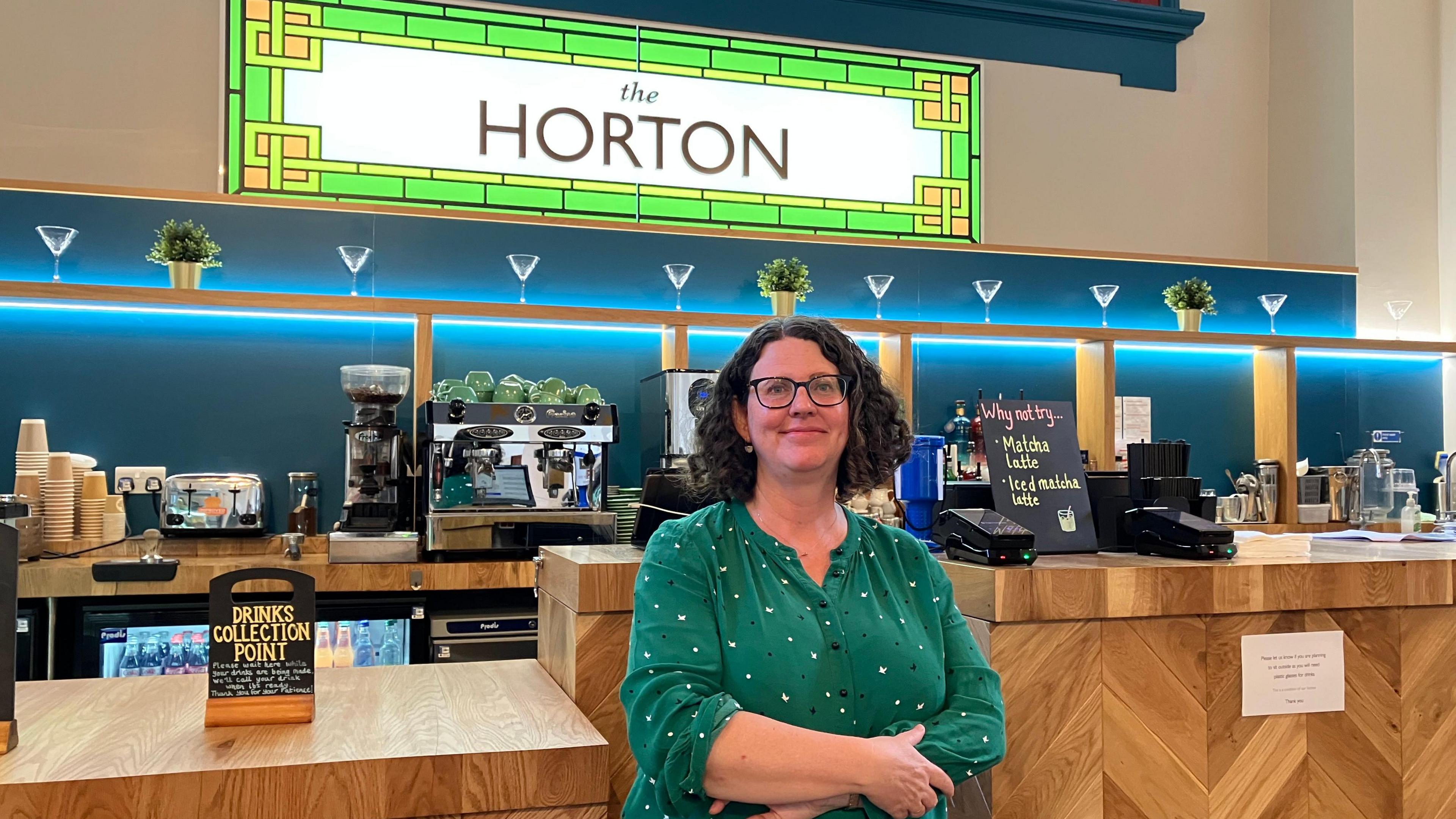
Prof Alana Harris is looking for relatives of those buried in the cemetery
Mr Newman, who was born and raised in Streatham, south London, was told by his father, who died in 2010, that the last he ever saw of William Robert Newman was him being taken away on "some sort of a gurney".
His late father never visited the Horton Cemetery site where his own father was buried, Mr Newman said.
He said there was nothing to show his grandfather was buried there.
'National policy needed'
The Law Commission is seeking to reform the "piecemeal" law around burial sites in England and Wales, and carried out a consultation on its plans which closed in January.
Epsom and Ewell MP Helen Maguire told BBC Surrey she had written to the Law Commission to confirm whether the cemetery site was part of the consultation.
"We need national policy that doesn't allow sites like these to be treated as real estate without thought of how we remember those who are buried or once were buried there," she said.
A Law Commission spokesman said: "While our proposals apply to burial grounds in general rather than specific burial grounds, we have had a number of responses to our consultation including on issues relating to burial grounds formerly owned by hospitals.
"We are currently analysing these responses with a view to publishing final recommendations early next year."
Maguire also said she had written to Justice Secretary David Lammy and that it was important to have a "serious conversation" about legal protections for burial grounds, particularly "cultural and morally significant" sites like Horton Cemetery.
A Ministry of Justice spokesperson said: "Human remains cannot be disturbed without appropriate permissions."
They added that no requests to remove the remains at Horton Cemetery had been received to date.
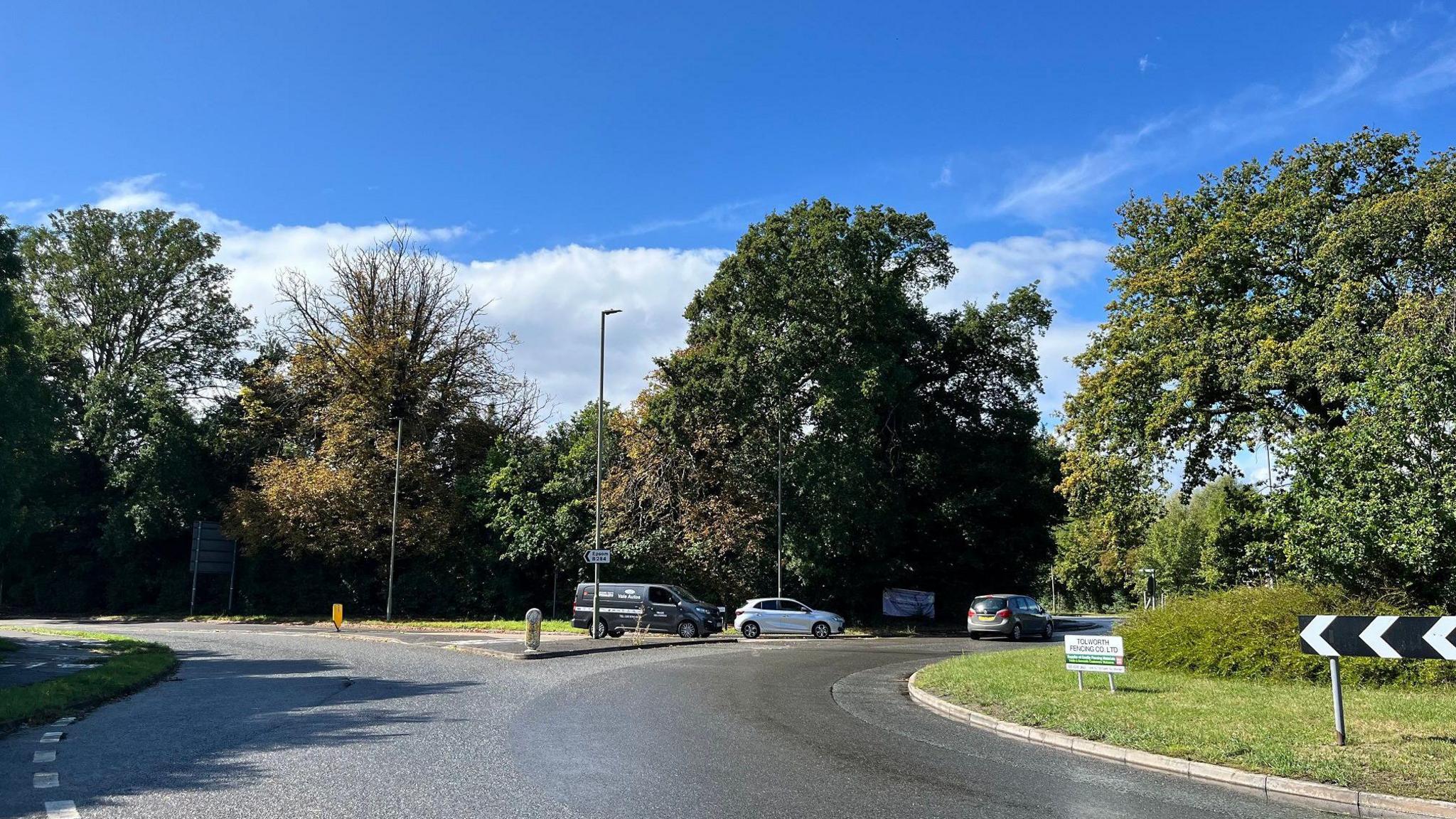
The site is located off a roundabout, with little to mark its history
Prof Harris said in telling the stories of those buried there, the issues of mental health, disability and poverty in the past were considered.
"There are real connections to conversations we have to have in the present about these same issues," she added.
She wants to find those who were "most intimately invested in the site", people with relatives buried there.
"What happens to their remains and the dignity that's given to their remains is a very personal preoccupation for them," she added.
She said there were 120 such cemeteries across the country, with Epsom's the largest, but also "the most derelict, in most need of saving and attention".
Follow BBC Surrey on Facebook, external, on X, external, and on Instagram, external. Send your story ideas to southeasttoday@bbc.co.uk, external or WhatsApp us on 08081 002250.
Related topics
- Published27 July 2024
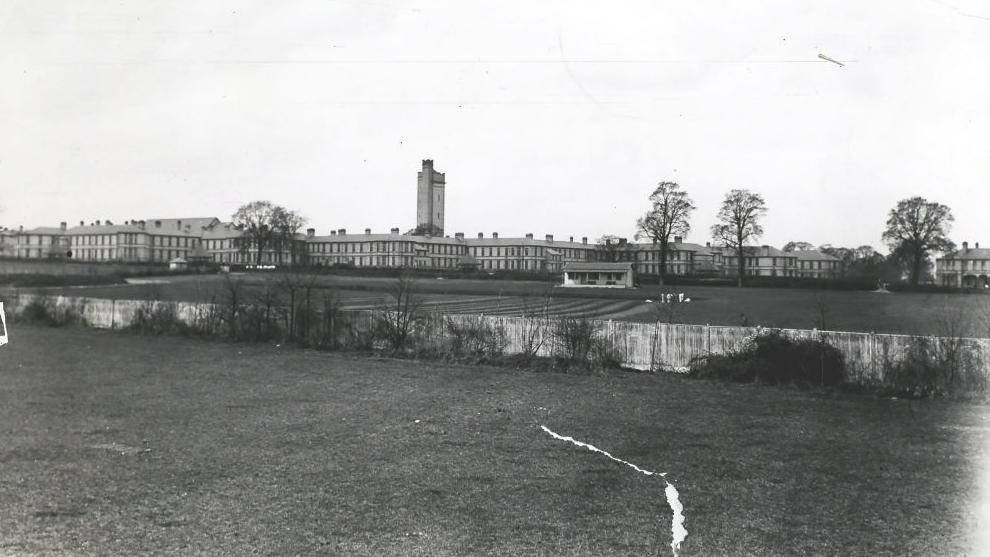
- Published12 March
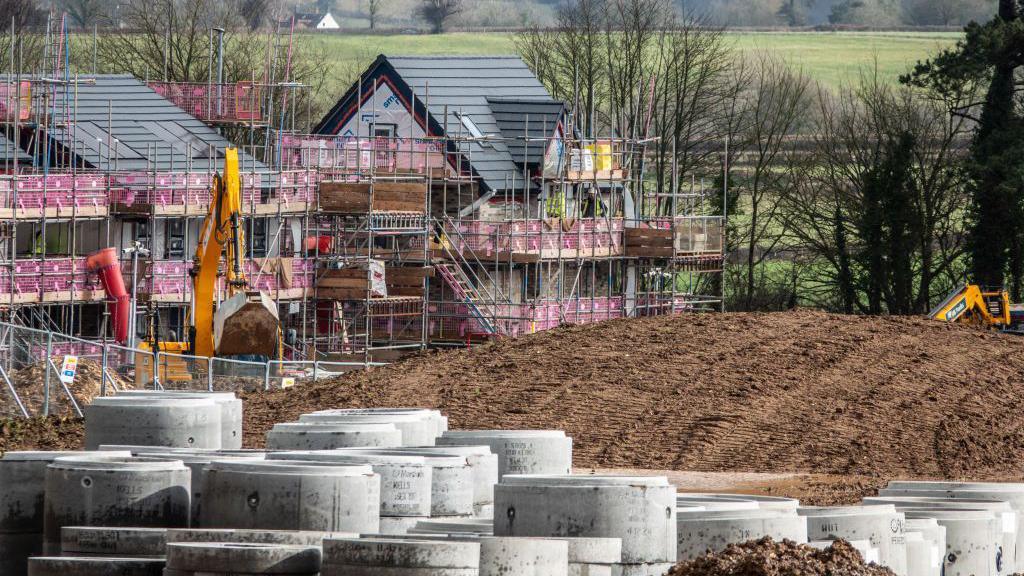
- Published4 November 2024
